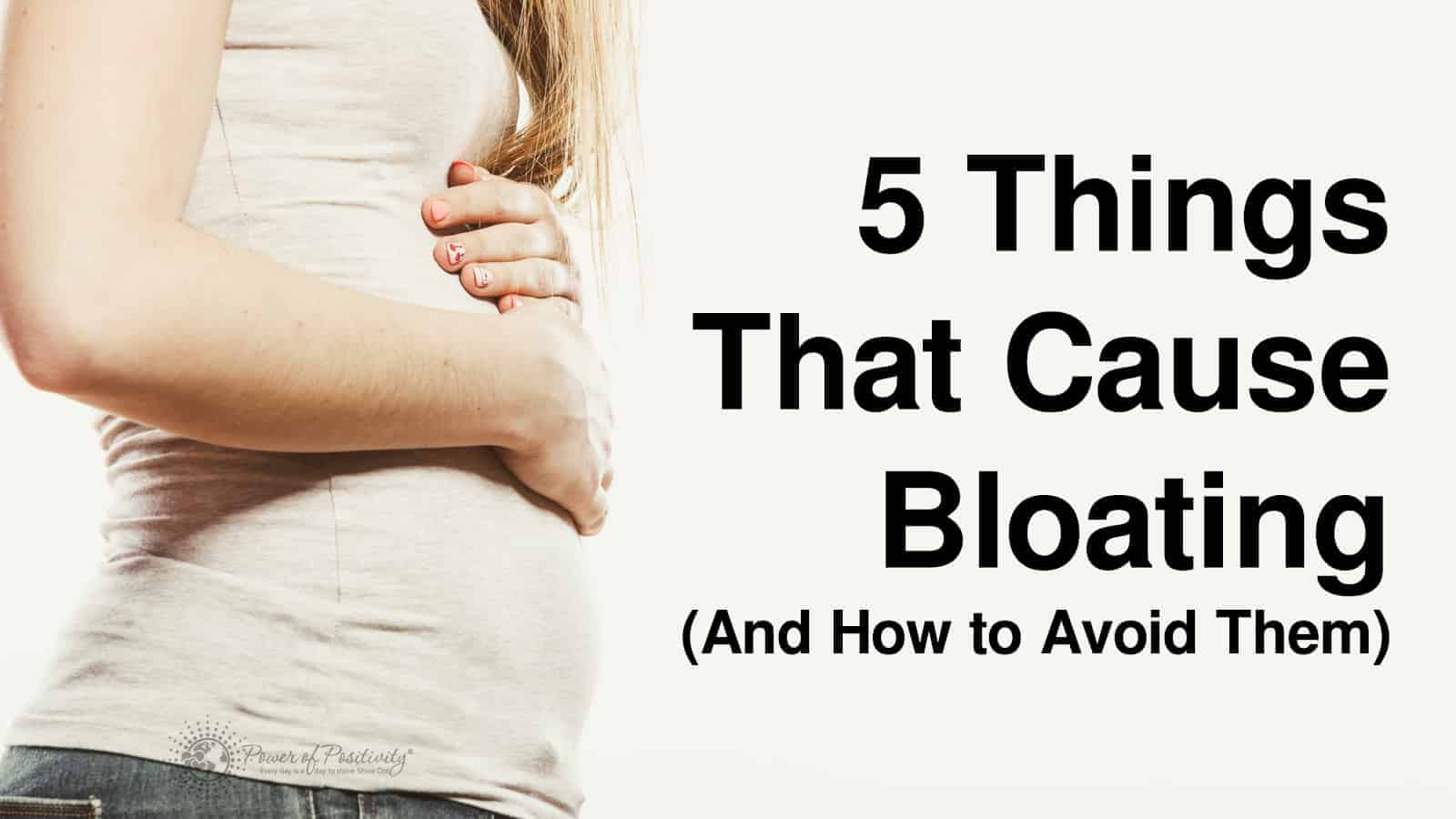Your diet, medications you take, or even beverages could all be things that are causing that uncomfortable and unattractive bloating in your body. In this article, we will look at five possible causes of your bloating issue and also how to resolve it for a flatter belly.
Chronic bloating is so distressful to some people that the New England Journal of Medicine says, ‘in one study, nearly 50% of the patients were willing to accept a 12.7% risk of sudden death with a drug that offered a 99% chance of cure. Can you imagine being so desperate to cure yourself from bloating that a 12.7% risk of sudden death sounds GOOD to you?
5 Things That Cause Bloating
Bloating is caused when air enters our digestive system or is created as food is broken down. The air takes up room and makes our digestive organs swell, sometimes causing pain and discomfort not to mention making us look a little bigger-bellied than we would like.
Bloating can be the symptom for an underlying medical problem so getting at the root of the cause is important for your health. Dr. Satish S. C. Rao says ‘Symptoms such as belching, bloating, and flatulence may represent functional bowel disorder or may herald the onset of an organic syndrome such as peptic ulcer disease, malabsorption, gastrointestinal obstruction, bacterial overgrowth, or parasitic infestation.’
Related article: This Is What Happens When You Drink Wheatgrass Every Day
Symptoms of bloating can interfere with your ability to absorb the necessary nutrients from the food that you eat. You can try eliminating these potential causes of bloating from your diet, but check with your physician if your bloating is a concern to you. You may be able to work with your doctor to find a solution.
1. Ingesting too much
Overeating is not just about stuffing yourself. The human stomach is about the size of your closed fist. If the quantity of food on your plate would be larger than that, you are asking for stomach bloating.
Related article: How To Stop Emotional Eating In 3 Steps
Think of your level of hunger as a scale. Other cultures look at eating differently than Western households where cleaning your plate and avoiding waste was encouraged. After a meal, we expect to feel full, which is what we equate with satisfying our hunger.
In the Japanese culture of the Okinawan people, people eat only until they are no longer hungry or are 80% full. On a scale from haven’t-eaten-in-days to just-ate-Thanksgiving-dinner-plus-pie, try to stop before you feel full. Overeating can definitely cause bloat as well as weight gain.
Eating too fast can also cause bloating if you are swallowing large amounts of air as you gulp your food or drinks. Sucking through a straw, chewing gum and sucking on candy or lozenges can also increase the amount of swallowed air that may cause you to bloat.
2. Bloat-causing veggies
Anything that makes you burp after you’ve eaten it is also causing bubbles down the line of your digestive tract. The digestive tract is huge and you may experience symptoms of bloating anywhere in it, from just under your ribcage to your lower abdomen and even in your back.
You may have experienced gas from belching after eating any of the following vegetables:
- Cucumbers
- Cauliflower
- Broccoli
- Cabbage
- Kale
- Brussels sprouts
- Beans
- Lentils
- Prunes
- Sprouts
- Apricots
- Dairy that includes lactose
As the digestive tract expands due to the gas, it pushes other organs out and causes painful pressure in other areas of the body as well.
3. Sport beverages
The fact that carbonated beverages cause bloating make senses, of course all those bubbles are combining to make a giant gas bubble in your digestive system. Other non-carbonated beverages, especially ones sweetened with Sorbitol, can cause gastrointestinal distress and bloating.
Some beverages that are marketed for the purpose hydrating people who engage in athletic and sports activities have a lot of ingredients that lead to bloating. Natural and artificial sweeteners, preservatives, added color chemicals, etc. are all ingredients that creates gas byproducts in your digestive system.
4. Certain medications
Chronic boating is called functional dyspepsia. Although you can still function, if that feeling of discomfort and fullness happened at least once per week and over a period of 6 months or longer, you are a chronic sufferer. According to an article in the New England Journal of Medicine, ‘Up to 40% of persons who have functional dyspepsia consult a physician, and the condition negatively affects attendance and productivity in the workplace.’
Are you taking any non-steroidal anti-inflammatory drugs (NSAIDs)? These medications that your doctor may have you on can cause bubbles and digestive discomfort. Talk to your doctor about symptoms of bloating that you have after beginning a new medication.
5. Higher fat foods
New England Journal of Medicine also says that people suffering from bloating should reduce stress and anxiety, and that they should eat small, regular, low-fat meals to help avoid bloating.












 Community
Community

